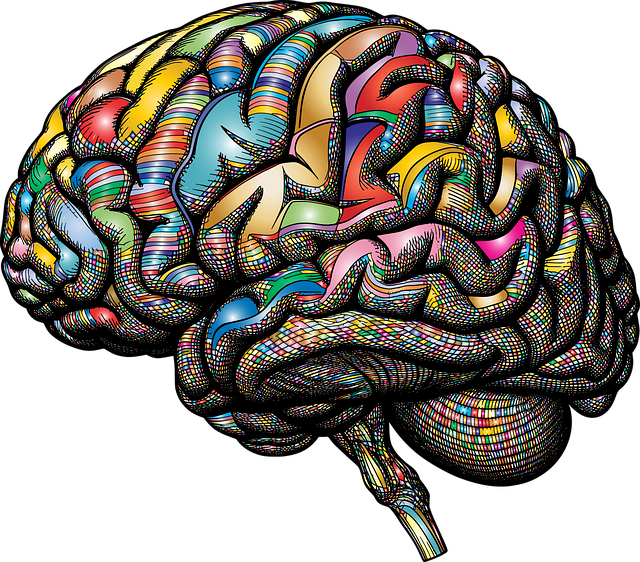Mental wellness journaling is an effective therapy for young adults, providing a safe space for self-reflection and personal growth through emotional expression. Therapists and clinicians can incorporate this practice into treatment plans to gain valuable insights into clients' mental states, encourage introspection, and improve therapy outcomes. Public awareness campaigns centered around mental wellness journaling enhance risk management planning by empowering individuals to proactively engage in their well-being, ultimately benefiting both young adults and professionals in the field.
“Unwind your mind and discover the transformative power of mental wellness journaling. This article serves as a comprehensive guide, offering insights into how this simple practice can significantly enhance emotional well-being, especially among young adults. From understanding its fundamentals to practical tips for effective journaling, we explore strategies tailored for both individuals seeking therapy for young adults and professionals looking to integrate journaling into their clinical practices as therapists-clinicians.”
- Understanding Mental Wellness Journaling: A Powerful Tool for Self-Reflection
- Benefits of Journaling for Young Adults: Enhancing Emotional Intelligence and Resilience
- Practical Tips for Effective Journaling: Creating a Safe Space on the Page
- Integrating Journaling into Therapy Sessions: Strategies for Clinicians and Therapists
Understanding Mental Wellness Journaling: A Powerful Tool for Self-Reflection

Mental wellness journaling is a powerful tool for self-reflection and personal growth, particularly beneficial for young adults navigating life’s challenges. It serves as a safe space to express thoughts and emotions, fostering an important connection between mind and pen. For therapists and clinicians, incorporating this practice into their treatment plans can offer valuable insights into their clients’ mental states and progress.
Consider it as a form of therapy that encourages introspection, helping individuals process experiences, identify patterns, and gain clarity on their feelings. This simple yet profound exercise promotes self-awareness, which is essential for understanding one’s triggers, strengths, and weaknesses. In the context of young adults’ therapy or clinician-led sessions, journaling can facilitate open communication, aiding in tailored interventions and enhancing treatment outcomes. Moreover, public awareness campaigns centered around mental wellness journaling can contribute to better risk management planning for mental health professionals by providing individuals with a means to proactively engage in their well-being.
Benefits of Journaling for Young Adults: Enhancing Emotional Intelligence and Resilience

Journaling offers a powerful therapy for young adults, serving as a valuable tool for therapists and clinicians to facilitate emotional intelligence development and build resilience. By committing thoughts and feelings to paper, individuals can gain profound insights into their emotions, thought patterns, and triggers—a process that fosters self-awareness exercises. This increased introspection enables young adults to better understand themselves and manage their responses to life’s challenges, making it an effective stress reduction method.
Moreover, regular journaling can enhance social skills training by encouraging the reflection on interpersonal interactions. Through writing, individuals can explore their reactions in various situations, learn to recognize emotional cues from others, and develop more empathetic responses. This enhanced emotional intelligence contributes to healthier relationships and improved overall mental wellness, making journaling a beneficial practice for both personal growth and therapy sessions.
Practical Tips for Effective Journaling: Creating a Safe Space on the Page

Engaging in mental wellness journaling can be a powerful tool for young adults seeking therapy and self-discovery. When starting this practice, creating a safe space on the page is essential. This means fostering an environment where individuals feel comfortable expressing their thoughts and emotions freely, without fear of judgment. Therapists and clinicians can guide clients to approach journaling as a form of self-care by encouraging them to set aside dedicated time each day or week for this activity.
Designing a private, quiet space for journaling sessions can enhance the process. This could be a corner of a bedroom or a peaceful area in a therapy office. Minimizing distractions and ensuring confidentiality contribute to a sense of safety and security while writing. Incorporating prompts tailored to individual needs, such as exploring feelings, setting intentions, or reflecting on accomplishments, can make journaling more accessible and beneficial for both young adults in therapy and therapists supporting them.
Integrating Journaling into Therapy Sessions: Strategies for Clinicians and Therapists

Integrating journaling into therapy sessions can be a powerful tool for both therapists and young adults seeking mental wellness. As a supplementary practice, journaling encourages self-reflection and emotional expression, allowing clients to gain deeper insights into their thoughts and feelings. For therapists, incorporating this technique offers a unique way to bridge the gap between sessions and enhance therapeutic outcomes.
In therapy for young adults, clinicians can guide patients through structured journaling exercises tailored to specific goals. This might involve prompts related to tracking moods, identifying triggers, or exploring personal values and aspirations. By fostering self-awareness exercises, therapists enable clients to better understand their emotional landscapes and develop effective conflict resolution techniques. The process itself promotes a sense of agency, empowering young adults to actively participate in their mental health journey alongside professional guidance.
Mental wellness journaling is a versatile tool that can significantly enhance both personal growth and professional practice, especially in therapy for young adults. By providing a safe space for self-reflection, it empowers individuals to cultivate emotional intelligence and resilience. For therapists and clinicians, integrating this exercise into sessions offers valuable insights, enabling them to provide more tailored and effective therapy for their clients. With consistent practice, journaling can be a game-changer, fostering personal metamorphosis and revolutionizing mental wellness management.








